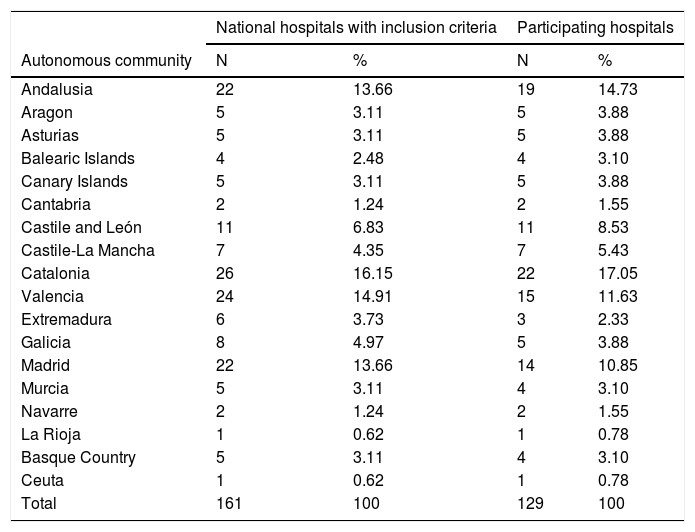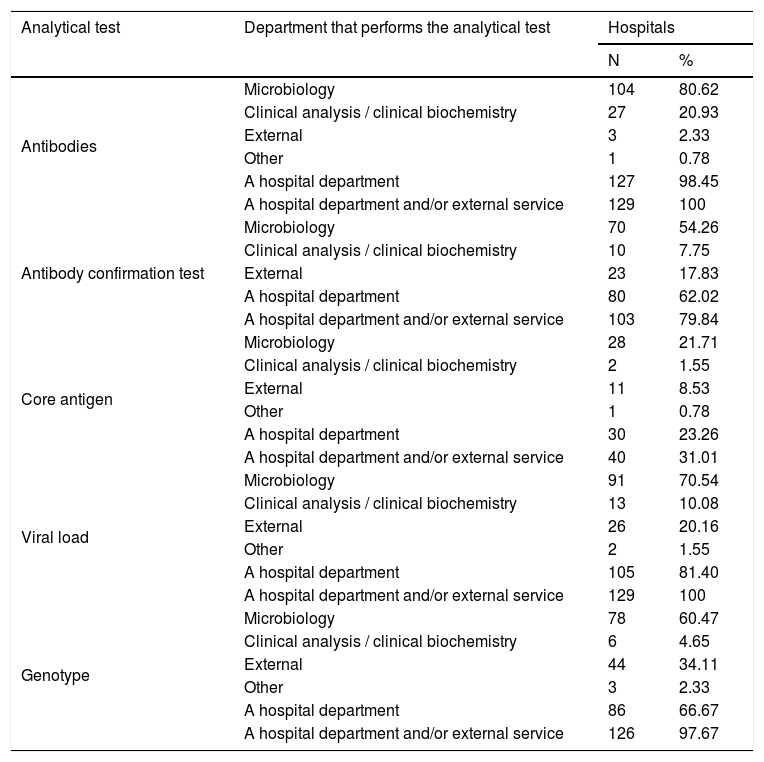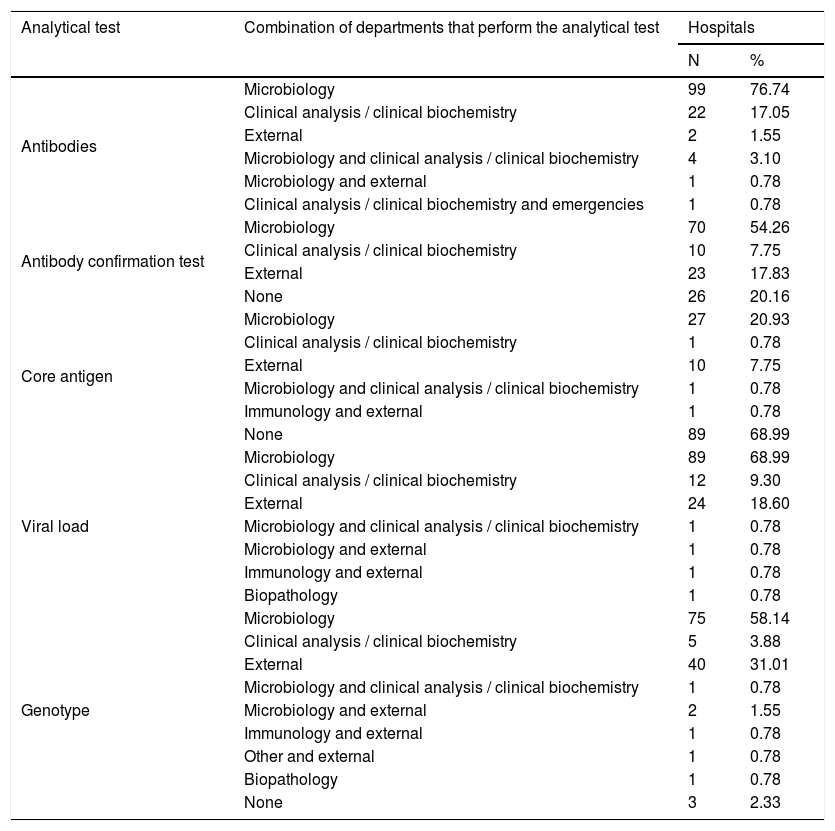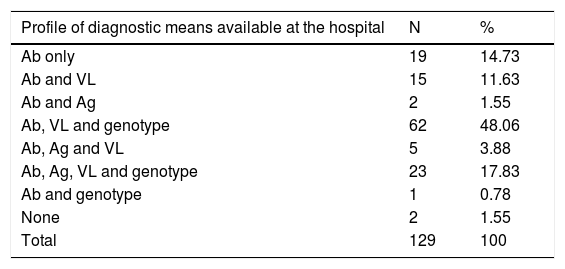Reflex testing is necessary to achieve the objectives of hepatitis C elimination. However, in 2017 only 31% of Spanish hospitals performed reflex test. As a consequence of that finding, reflex testing was recommended by scientific societies involved in the diagnosis and treatment of hepatitis C.
ObjectiveTo evaluate the degree of implementation of reflex testing in 2019 and to know the implementation of rapid diagnostic and/or dried blood spot testing (RDT and / or DBS) in Spanish hospitals.
MethodsCross-sectional study through a survey conducted in October 2019 to Spanish general hospitals with at least 200 beds, public or private with teaching accreditation.
Results129 (80%) hospitals responded. Reflex testing is performed by 89% of the centres vs. 31% in 2017 (P<.001). From 2017 to 2019, centres using alerts to improve continuity of care increased from 69% to 86% (P=.002). In 2019, 11% of centres can determine anti-HCV in dried spot, 15% viremia in dried spot, 0.85% anti-HCV in saliva, and 37% of antibodies and/or viremia with point of care test. 43% of hospitals have at least one diagnostic method with RDT and/or DBS.
ConclusionThe implementation of reflex testing has increased significantly, reaching 89% of hospitals in 2019. The recommendations of scientific societies could have contributed to the implementation of reflex testing. On the other hand, access to RDT and/or DBS is insufficient and initiatives are needed to improve their implementation.
El diagnóstico en un solo paso (DUSP) es necesario para conseguir los objetivos de eliminación de la hepatitis C, pero en 2017 sólo el 31% de los hospitales españoles hacía DUSP. Tras ese hallazgo, el DUSP fue recomendado por las sociedades científicas involucradas en el diagnóstico y tratamiento de la hepatitis C.
ObjetivosEvaluar el grado de implementación del DUSP en 2019, y conocer la implantación de tests de diagnóstico rápido y/o en gota seca (TDR y/o DBS) en los hospitales españoles.
MétodosEstudio transversal mediante encuesta realizada en octubre de 2019 dirigida a hospitales generales españoles con ≥200 camas, públicos, o privados con acreditación docente.
ResultadosRespondieron 129 (80%) hospitales. El DUSP lo hace el 89% de los centros vs. el 31% en 2017 (P<,001). De 2017 a 2019 los centros que utilizan alertas para mejorar la continuidad asistencial aumentaron del 69% al 86% (P=,002). En 2019, el 11% de centros puede determinar anti-VHC en gota seca, el 15% viremia en gota seca, el 0,85% anti-VHC en saliva, y el 37% de anticuerpos y/o viremia con test point of care. El 43% de los hospitales disponen al menos de un método diagnóstico con TDR y/o DBS.
ConclusionesLa implantación del DUSP ha aumentado significativamente, llegando al 89% de los hospitales en 2019. Las recomendaciones de las sociedades científicas podrían haber contribuido a la implantación del DUSP. Por otra parte, el acceso a los TDR y/o DBS es insuficiente y se necesitan medidas encaminadas a mejorar su implementación.
Article
Socio de la Sociedad Española de Enfermedades Infecciosas y Microbiología Clínica

Para acceder a la revista
Es necesario que lo haga desde la zona privada de la web de la SEIMC, clique aquí
Para realizar los cursos formativos
La actividad estará abierta para socios de la SEIMC. IMPORTANTE, recuerde que requiere registro previo gratuito. Empezar aquí












